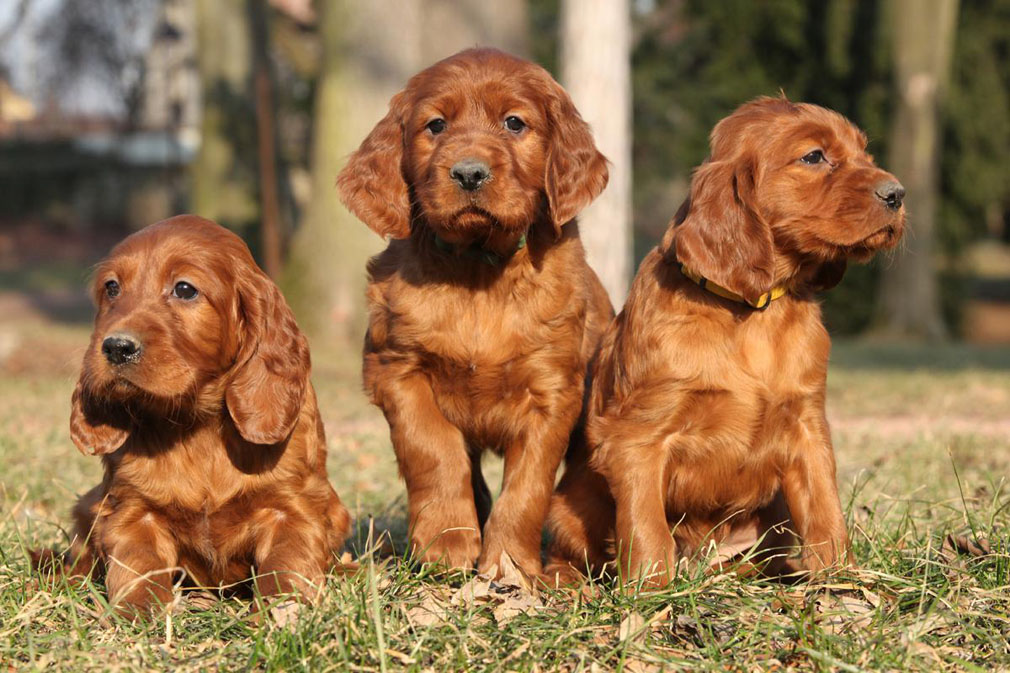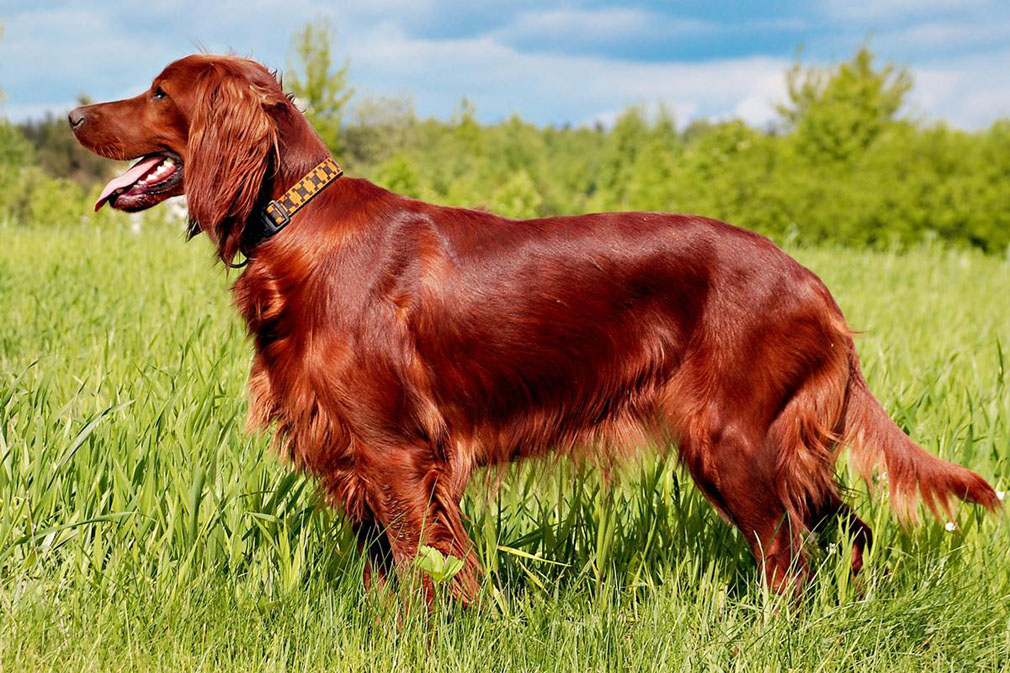Irish Setter


 Puppy
Puppy
 Fully Grown
Fully Grown
These stunning looking dogs are sure to turn heads with their gorgeous silky coat mahogany/red hair. Their behavior is dominated by their endless energy, which is best utilised with hunting and retrieving.
Irish Setters use their nose a lot as this is required for hunting. Their desire to hunt is immense and early recall training is of utmost importance to keep them safe in urban environments. You will usually find them nose down and tail up sniffing out the area around them in readiness for a potential hunt.
If you want to bring home an Irish Setter, we suggest that you get yourselves some gumboots and rain gear. Without lots of daily exercise, this breed will go crazy at home. Mud puddles and bad weather are an Irish Setter's best friend, so it's best to always have a towel ready at the door.
Irish Setters can easily get over excited and if they do, they can hardly contain their excitement. Many people have had the experience of being pushed over by an enthusiastic Irish Setter just wanting to say 'hello'!
| Weight: | 29-34 kg |
| Health risk: | Medium |
| Life expectancy: | 10-14 years |
| Coat: | Long |
| Grooming intensity: | High |
| Monthly cost (food): | Above average |
| Trainability: | High |
| Activity level: | High |
There are many sources to get your Irish Setter from. Considering the number of homeless dogs without a future, we strongly encourage you to consider rescuing a dog. Your local shelter or rescue organisation can be a helpful place to start, or try contacting your local or national breed club or a reputable breeder and asking if they have pets available for rehoming. Many rescue organisations have active Facebook pages, which can also be a good place to enquire.
Here are some links that could be useful for finding an Irish Setter to adopt:
To help your rescued Irish Setter to settle into your home, our Rescue Dog Guide gives you tips and advice on bringing your rescue dog home.
If you decide you’d prefer to get your Irish Setter from a breeder, the following guides will help you to find a responsible breeder:
The following organisations will be able to help you find breeders in your state in Australia. They will also be able to connect you with your local breed clubs, which are always a great source of information in regards to finding good breeders and rescue organisations.